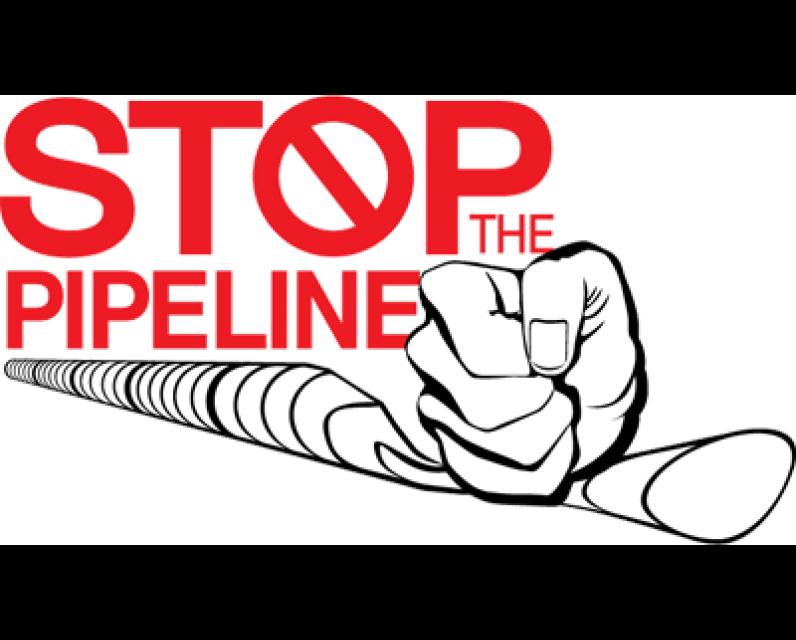Unpublished Opinions
A thousand times no to the Kinder Morgan pipeline

This letter is addressed to the Pacific Caucus, a group of British Columbian Liberal MPs brought together to have a distinct voice in the federal Liberal caucus. Recently two Caucus members broke rank by calling for the government to reject the Kinder Morgan pipeline extension.
Dear MP Sarai –
I have been told that you handle the correspondence for the Pacific Caucus, and it is to the Caucus that I address this letter.
First, I want to commend caucus members MP Terry Beech and MP Ron McKinnon for pursuing their observation that their constituents do not support the Kinder Morgan Trans Mountain pipeline extension.
In August, after conducting extensive public consultations through door-knocking, coffee meetings, a survey, and a town hall, Mr. Beech wrote to his constituents: “The most important part of my job as your Member of Parliament is to listen to you. Over the summer, many residents asked me to provide an opportunity for further scientific and evidence-based discussions on the proposed Trans Mountain Expansion project. I also heard from many in our community who are curious about what action our government is taking to transition towards a green economy.”
Later, he told the three-member panel studying the NEB regulatory process that the community – apparently not having received any convincing evidence or scientific findings – did not grant permission for the pipeline project to proceed.
Today, Coquitlam-Port Coquitlam MP McKinnon told Natural Resources Minister Jim Carr that his constituents believe the health, environmental and social costs of a spill in such a highly populated area, in an economy dependent on industries like tourism and fisheries, would be “far too great.” It was his responsibility, he said, “to represent my constituents’ interests in Ottawa, and not Ottawa’s interests in my riding.”
Looking to the province itself, Mr. McKinnon asked the minister “to listen to the collective wisdom of British Columbians.” Indeed in March 2016, an Insights West poll showed that support for Kinder Morgan (as well as for the Northern Gateway pipeline) was falling. A full 45 per cent of respondents were opposed to the Kinder Morgan extension, while only 36 per cent were in support.
But it’s not just the wisdom of British Columbians that should be heard by these MPs and indeed by all others. Also in March 2016, a CBC/EKOS poll found that 40 per cent of Canadians supported a moratorium on new oil and gas pipelines, “even if it hurt the economy.“ As for British Columbians, according to the EKOS pollsters, they said no to the TransMountain expansion because Kinder Morgan did not provide world-leading spill response. That was before the diesel spill at Bella Bella, which showed in actual terms how deficient spill response could possibly be.
The Liberal government has, of course, insisted that environmental concerns can and must be balanced against economic concerns. So we find ourselves in a situation where a federal carbon tax is approved and a couple of LNG plants are also approved – one of them, Pacific Northwest, is widely referred to as a “carbon bomb.” In all likelihood, the promised tanker ban on the north coast and the announced $1.5 billion investment in a “marine safety system” to research oil spill cleanup methods and restore marine ecosystems after a spill will be another quid pro quo, in this instance for approval of the Kinder Morgan pipeline.
But to many, this situation of one hand giving what the other takes away is not “balance” at all. Just as a marine safety system that will not actually prevent spills cannot be called a safety system at all, it is an unresolvable contradiction to think that we can have environmental safety and also have fossil fuel exploitation. Canada has had a bad time at Marrakech over this contradiction. On Wednesday, Christian Aid Africa issued a media release stating, "It is a serious concern when we see the international community not honouring their commitments and we are concerned Canada is still pursuing their fossil fuel projects. Developed countries have a moral obligation to honour the Paris Agreement." Philippines-based Global Campaign to Demand Climate Justice also called on Canada "to do the utmost that it can in domestic emissions reduction, to stop all expansion of fossil fuels, to do an immediate transition to renewable energy and deliver the finance necessary to keep the world from breaching 1.5 (degrees) Celsius."
Wednesday night in Marrakech, the Canadian Youth Delegation interrupted a reception hosted by Environment and Climate Change Minister Catherine McKenna to celebrate the work Canada has done on international climate action. They presented a petition with the signatures of over 210,000 Canadians demanding the Liberal Government reject the Kinder Morgan project and unfurled a large banner which read Reject Kinder Morgan: Climate Leaders Don’t Build Pipelines. “Canada’s climate commitments to the international community are meaningless if Trudeau’s government moves forward with approving the Kinder Morgan pipeline. It’s time for our government to choose between people and pipelines,” said Kell Gerlings, Canadian Youth Delegate from Coast Salish Territories, Vancouver. “Either they stand with our generation and for communities already suffering the effects of climate change, or they continue building oil pipelines that are driving the climate crisis. They cannot have it both ways.”
MPs Terry Beech and Ron McKinnon have, along with the millennial generation, made clear the dire lack of social license for the Kinder Morgan expansion. What can Minister Carr be thinking when he tells Canadians that even if president-elect Donald Trump greenlights the Keystone XL, the Liberals still want new Canadian pipeline capacity to serve the Asian market? China has warned Trump that climate change is no hoax. Due at least in part to rigorous government policies, that country may have achieved a peak in emissions years earlier than it pledged. Trump himself is about to be dragged into the court case brought by American children against their government that claims climate change is an existential threat and that they have a constitutional right to life and liberty. A court has quashed the government’s bid to have the case dismissed. And Vancouver’s mayor has warned of a “fraudulent” NEB process and “unprecedented opposition” to the pipeline expansion that may well turn out “ugly.” Kinder Morgan executives and the RCMP are indeed preparing for ugly.
The federal government has yet to explain to Canadians why it’s willing to stoke social unrest for a project that Conversations for Responsible Economic Development (CRED) – a self-described “fiercely pro-business and pro-economic development” research and advocacy organization – has said poses more economic risks than benefits. Investment, CRED reported, “is better suited to industries that employ more people and inject more money into the economy. An oil spill would threaten not only the health of the natural environment but also some of the west coast’s most iconic industries, and the promise of jobs and taxes are actually quite minimal.”
In the era of #NoDAPL, in the era of a continent-wide union of First Nations against tar sands, pipelines and tankers, the question bears repeating: why would the government risk monumental social unrest by approving new fossil fuel developments and infrastructure projects that promise further global warming and demolished legal (in the case of B.C.) and aspirational GHG emissions reduction targets when there are much better alternatives out there? Why would the government do that?
I look forward to hearing from the members of the Pacific Caucus on this matter. If Mr. McKinnon is not mistaken, Ottawa is likewise looking forward to hearing from you.
Dianne Varga
Penticton, BC
CC: Cabinet members; Union of BC Indian Chiefs; Party leaders: Rheal Fortin, Elizabeth May, Rona Ambrose, Thomas Mulcair; Heiltsuk Incident Commander Jess Housty; Opposition and shadow critics: for the environment and climate change Ed Fast and Nathan Cullen, for natural resources Candice Bergen and Carol Hughes, for public safety Erin O’Toole and David Christopherson, for indigenous and northern affairs Cathy McLeod and Charlie Angus



Comments
Be the first to comment